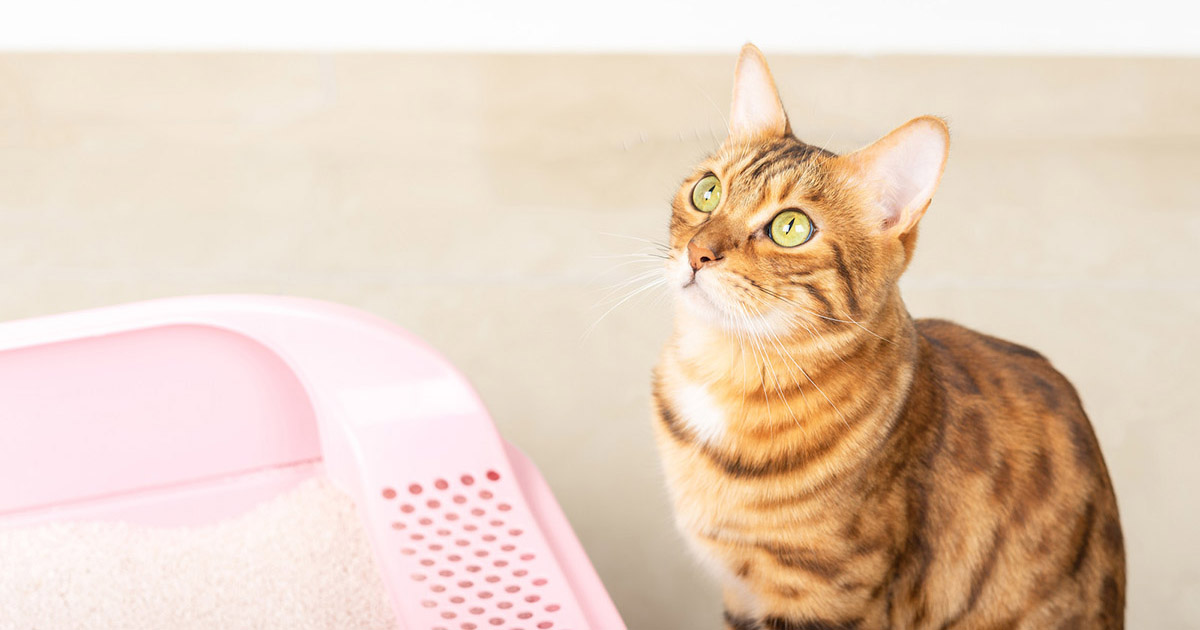Never Flush Cat Poop Down Your Toilet - Protect Your Plumbing System
Never Flush Cat Poop Down Your Toilet - Protect Your Plumbing System
Blog Article
What're your ideas on Can You Flush Cat Poop Down The Toilet??

Intro
As cat proprietors, it's necessary to be mindful of just how we take care of our feline friends' waste. While it may seem convenient to purge feline poop down the bathroom, this practice can have damaging effects for both the atmosphere and human health and wellness.
Alternatives to Flushing
Luckily, there are more secure and extra accountable ways to dispose of feline poop. Take into consideration the following alternatives:
1. Scoop and Dispose in Trash
One of the most usual approach of getting rid of feline poop is to scoop it into a biodegradable bag and throw it in the trash. Make certain to make use of a specialized clutter scoop and dispose of the waste quickly.
2. Usage Biodegradable Litter
Opt for eco-friendly pet cat clutter made from products such as corn or wheat. These litters are eco-friendly and can be safely gotten rid of in the trash.
3. Bury in the Yard
If you have a lawn, consider burying pet cat waste in an assigned area far from veggie gardens and water resources. Be sure to dig deep adequate to avoid contamination of groundwater.
4. Install a Pet Waste Disposal System
Invest in a pet waste disposal system particularly created for cat waste. These systems make use of enzymes to break down the waste, lowering smell and environmental impact.
Health Risks
Along with ecological issues, purging cat waste can also pose wellness threats to humans. Pet cat feces might contain Toxoplasma gondii, a bloodsucker that can create toxoplasmosis-- a potentially extreme ailment, particularly for pregnant women and people with damaged body immune systems.
Ecological Impact
Flushing feline poop introduces harmful pathogens and bloodsuckers into the supply of water, posturing a considerable risk to aquatic communities. These pollutants can adversely impact aquatic life and concession water top quality.
Conclusion
Liable animal ownership prolongs past giving food and shelter-- it additionally entails appropriate waste monitoring. By refraining from flushing feline poop down the commode and going with alternate disposal approaches, we can reduce our ecological footprint and safeguard human health and wellness.
Why Can’t I Flush Cat Poop?
It Spreads a Parasite
Cats are frequently infected with a parasite called toxoplasma gondii. The parasite causes an infection called toxoplasmosis. It is usually harmless to cats. The parasite only uses cat poop as a host for its eggs. Otherwise, the cat’s immune system usually keeps the infection at low enough levels to maintain its own health. But it does not stop the develop of eggs. These eggs are tiny and surprisingly tough. They may survive for a year before they begin to grow. But that’s the problem.
Our wastewater system is not designed to deal with toxoplasmosis eggs. Instead, most eggs will flush from your toilet into sewers and wastewater management plants. After the sewage is treated for many other harmful things in it, it is typically released into local rivers, lakes, or oceans. Here, the toxoplasmosis eggs can find new hosts, including starfish, crabs, otters, and many other wildlife. For many, this is a significant risk to their health. Toxoplasmosis can also end up infecting water sources that are important for agriculture, which means our deer, pigs, and sheep can get infected too.
Is There Risk to Humans?
There can be a risk to human life from flushing cat poop down the toilet. If you do so, the parasites from your cat’s poop can end up in shellfish, game animals, or livestock. If this meat is then served raw or undercooked, the people who eat it can get sick.
In fact, according to the CDC, 40 million people in the United States are infected with toxoplasma gondii. They get it from exposure to infected seafood, or from some kind of cat poop contamination, like drinking from a stream that is contaminated or touching anything that has come into contact with cat poop. That includes just cleaning a cat litter box.
Most people who get infected with these parasites will not develop any symptoms. However, for pregnant women or for those with compromised immune systems, the parasite can cause severe health problems.
How to Handle Cat Poop
The best way to handle cat poop is actually to clean the box more often. The eggs that the parasite sheds will not become active until one to five days after the cat poops. That means that if you clean daily, you’re much less likely to come into direct contact with infectious eggs.
That said, always dispose of cat poop in the garbage and not down the toilet. Wash your hands before and after you clean the litter box, and bring the bag of poop right outside to your garbage bins.
https://trenchlesssolutionsusa.com/why-cant-i-flush-cat-poop/

Hopefully you enjoyed our topic about How to Dispose of Cat Poop and Litter Without Plastic Bags. Thanks so much for taking time to read through our article post. Do you know anybody else who is in the market for the subject? Feel free to promote it. Thank you so much for taking the time to read it.
Book 24/7 Report this page